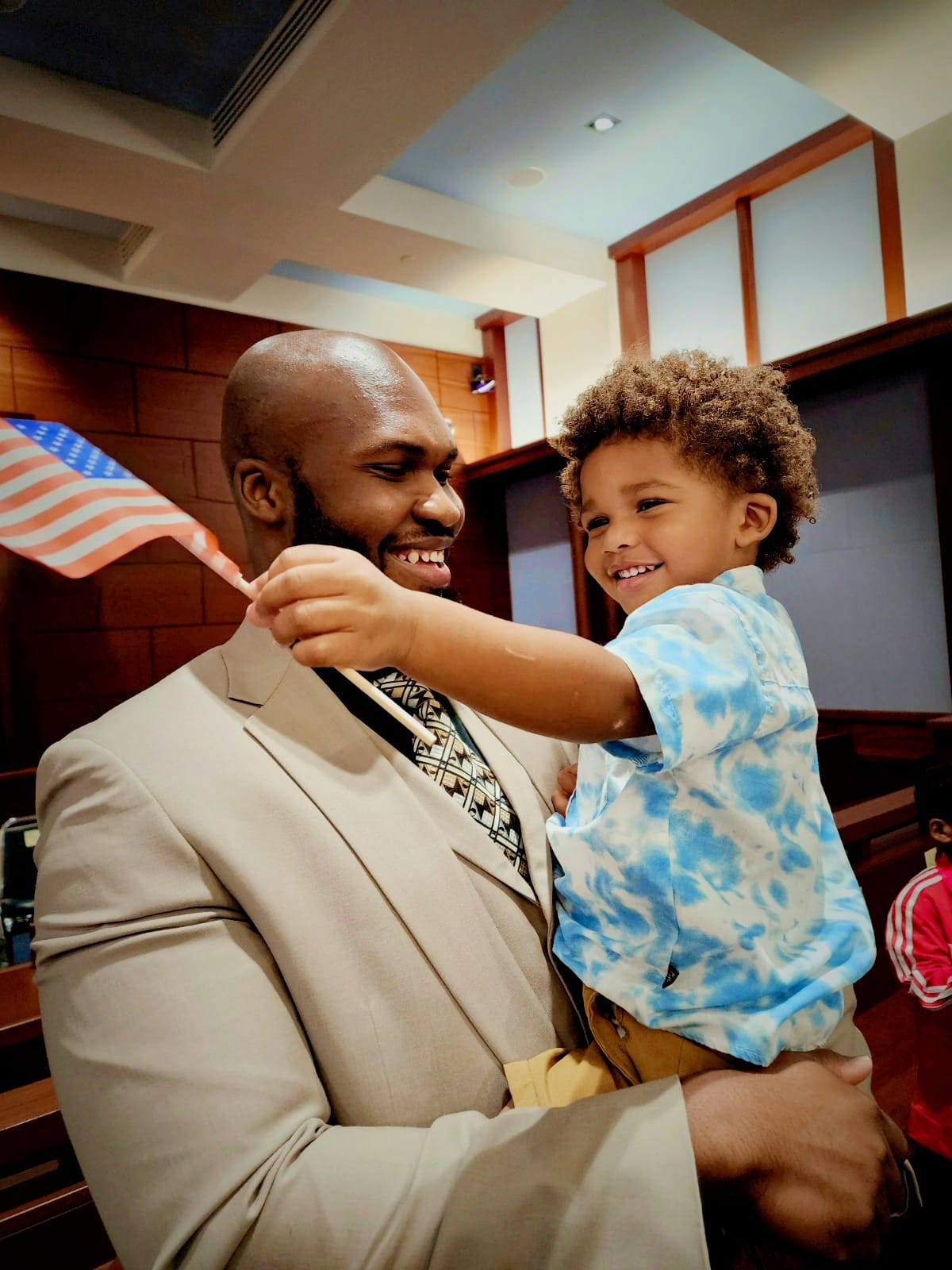Austin Peay State University employee reflects on U.S. citizenship journey
By: Megan Simpson December 12, 2023

CLARKSVILLE, Tenn. – Emmanuel Méjeun's U.S. journey began in 2010 when he arrived to study music and education. In the aftermath of a devastating 7.0 magnitude earthquake in his hometown of Port-Au-Prince, Haiti, that same year, Méjeun’s arrival in Clarksville supported his personal and professional dreams and reinvigorated his passions.
He quickly built up a support system of friends and family, and graduated from Austin Peay State University (APSU) with undergraduate and graduate degrees. These milestones made the U.S. – and Austin Peay in particular – feel like home. In October 2023, Méjeun took an important step to make this sense of home more official – he became a U.S. citizen.
Méjeun became the director of APSU’s Full Spectrum Learning (FSL) program in 2018. This support program helps to meet the needs of college students with autism spectrum disorder. As part of this position, Méjeun is responsible for program oversight, which often includes developing enhanced learning opportunities for its participants.
Earlier this year, he was planning a joint study abroad trip to Scotland with Full Spectrum Learning, the Student Disability Resource Center and the Department of Social Work. However, he encountered visa issues that prevented him from participating despite full University support.
While Méjeun’s Permanent Resident Card, also known as a Green Card, granted him the opportunity to work and live in the U.S., it did not guarantee that international travel would be without roadblocks. When Méjeun’s residency status impeded the trip, it sparked him to look into U.S. citizenship.
“I missed out on that opportunity, and that's when I said, ‘You know what, it's time,’” he said.
With these reasons at the forefront, Méjeun began the formal U.S. citizenship process
in February. As part of the requirements, he submitted paperwork, paid a fee and studied
diligently for a civics test administered in August. After passing the exam, he formally
became a citizen after taking an oath administered on Oct. 27 at a ceremony in Nashville.
In addition to the freedom to travel internationally for both professional and personal
reasons, his family was also at the core of Méjeun’s citizenship plans.
“My parents are still in Haiti, and I want to eventually have them be here,” he said. “Only a citizen can have someone come and reside in the United States.”
With citizenship comes certain responsibilities and privileges, including the ability to vote, run for political office and serve on jury duty. He hopes to use these privileges to make the country a better place for his 2-year-old son, Luka.
“I'm thinking of his future,” Méjeun said. “So having the opportunity to have a say, I think it’s good to have that.”
Méjeun – who maintains dual citizenship – will proudly carry forward his Haitian heritage. He draws much “in terms of culture, values and identity” from his home country, he explained.
“Now, I have the privilege to call myself a citizen of the United States, and I feel incredibly blessed to be a part of two extraordinary nations,” he said. “This dual citizenship is not just a legal status; it's a blending of two worlds that have shaped me into who I am today.”
Not one to rest on his laurels, Méjeun is already thinking about the future, and how he can continue to set an example for his students. He often relates his background of overcoming adversity to the struggles his students face.
“One of the things I do when I speak with my students is to help them understand that no matter what you're dealing with or whatever your situation is you can still push forward,” he said.
For Méjeun and many of his students and coworkers, Austin Peay provides a deeply satisfying place of purpose, camaraderie and achievement. Méjeun (‘15, ‘17) is one of several Austin Peay staff members enrolled in the Eriksson College of Education’s Doctorate of Education (Ed.D.) program. He has quadrupled the number of student participants in FSL since 2018 during his time as director, and added two new employees to his staff this year.
“I couldn't have asked to be a part of a better team,” he said.
Méjeun credits Austin Peay for much of his success, especially the encouragement and support from professors.
“The support system at APSU is unlike anywhere else,” he said. “As a student myself during my undergrad and graduate school, I’ve seen that the professors truly care. I've realized that I am not just another student or a name on a piece of paper; they really care and they want me to succeed. They go that extra mile to ensure that.”